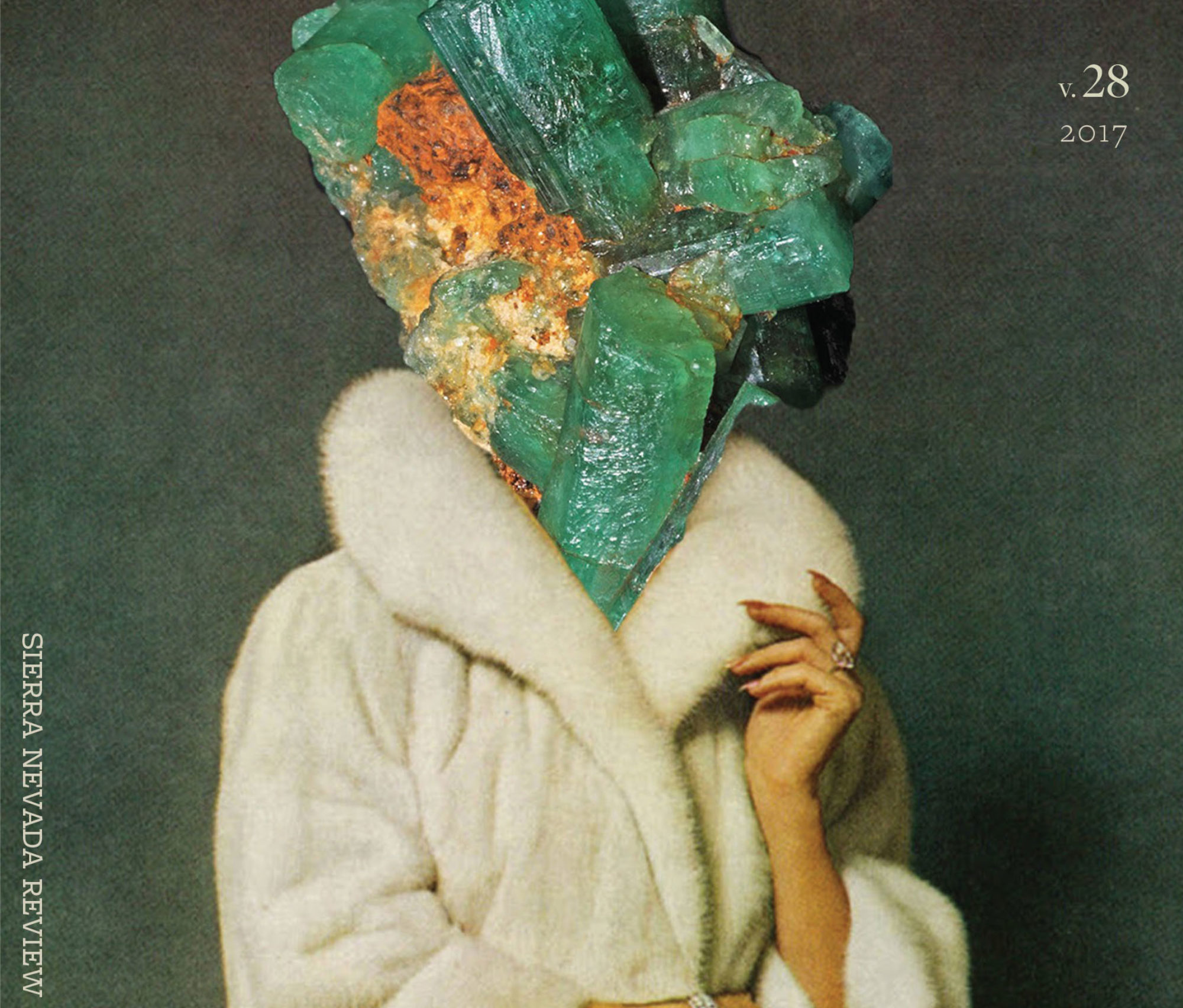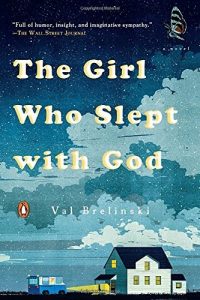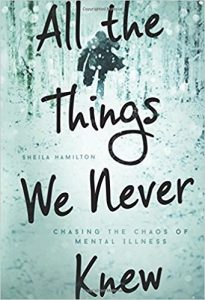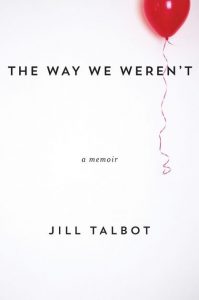J. Scott Price is a finalist for the Brian Turner Literary Arts Prize in the Spoken Word category.
Hannah Harris: Why do you write?
J. Scott Price: It would be too cliché to say, “Because I have to,” because I don’t. I spent a great deal of time not embracing my embryonic writer, and successfully not writing, so I know for a fact my life would go on without writing. For the vast majority of my life, I would only write occasionally, usually only around significant emotional events, and I didn’t believe writing was a true path for me until just a few years ago when I began very tentatively dipping my toes into whatever writing water I could find around me. I grew on every level through these explorations and discovered something Larry Levis wrote about his own internal dialogue in his book The Gazer Within that I’ve taken as my guidepost: “You will either be a poet, and become a better and better one, or you will not be a poet.” So, with that mantra echoing inside, I gave myself full permission to be an apprentice writer, and was accepted into the Vermont College of Fine Arts (VCFA) low-residency MFA in Writing program.
So despite my slower start, I write these days because I’ve come to know—belatedly, but happily—that my life is much fuller and more enjoyable with writing in it; that by taking the thoughts that occur to me while processing the world, recording them as scribbles then coming back to them to see what might be of use, I can work with these thoughts until they become something I am happy to have helped birth and may be of some small value to another.
I write because I can’t stop thinking (I tried that at one point, and it didn’t turn out too well), and because writing has been given to me as a gift, a tool to help better understand myself and my actions, and those of others. The physical act of processing these thoughts through writing helps me gain clarity on my experience, and hopefully respond better going forward.
HH: A piece of writing is, essentially, a collection of the series of choices the writer has made. How do you make the final choice: deciding when a piece of work is done? How do you know when something you’re working on is ready?
JSP: I rely on time, as often as a I can, as my primary assessment tool. I try to let pieces sit for a month or so and then revisit them, as that allows me to read them with more or less “fresh eyes” and see what’s working or not.
Interestingly, as I am developing, I am relooking poems that I had left as complete because of something I learned from a mentor. The mentor used Philip Levine’s “Agnus Dei” to illustrate how a beginning poet might have stopped at several points in this poem, thinking the poem complete, and how Levine kept it going to achieve a much better poem in the end. This leaves me willing to grow as a poet by not stopping at the earliest convenience just to see if the poem has more to say. My results are mixed, at this point, but it’s been a fun part of my growth to revisit my earlier concept of “done.”
Very rarely a poem will just flow and come out more or less complete. But I don’t count on that or plan for it; I just accept it as a gift when it occurs. Mostly I’ll take a piece as far as my current mind can take it, then I’ll put it aside. Interestingly to me, I’ll find over a several-months period that what I thought were isolated pieces actually fit together into a larger whole my mind was working on and I didn’t even realize it.
I recognize that I am still developing my eye and ear, that I still create false starts and false endings, and that this “training wheels” writing, as it’s been described to me, is a necessary part of my development as a writer, and for the poem to get to what it is trying to say. So I still rely on trusted readers in my local monthly poetry group and my MFA advisors and peers to help teach me what works and what doesn’t.
Ultimately, though, the final decision is mine, and, again, time is my ally. When I come back to a poem and am happily startled, that’s a pretty good indication to me that it’s done what it set out to do.
HH: Likely all of us can point to other writers who inspire us, but what, outside of literature, compels you as a writer? Where do you encounter, or glean, the motivation to work in your daily life?
JSP: My writing is driven by living, by being in the world, fallible, and attempting to improve. To write, I’ve come to believe, one must live first, then reflect on that experience, and see what is worth sharing that may be of value to another. That’s all there is to it for me. I live my life as best I can and the byproducts of that living are reflections that I now do my best to capture more often than I do not. I then enjoy the wordplay game of taking those thoughts and refining them into poems.
HH: What are you reading right now?
JSP: I am playing catch-up now that I’ve begun an MFA program. I’m spending a great deal of time reading craft books and individual poetry collections. The Poem In Its Skin by Paul Carroll, Claims for Poetry (ed. Donald Hall), A Field Guide to Contemporary Poetry and Poetics (ed. Stuart Friebert & David Young), The Making of a Poem by Mark Strand and Eavan Boland, and William Stafford’s You Must Revise Your Life are just a few of the craft books that have offered incredibly helpful insights.
I also use Twitter to find poets and poetry-related discussions, which most recently led me to Leila Chatti’s Tunsiya/Amrikiya, Victoria Chang’s Barbie Chang, and Equilibrum by Tiana Clark. I recently finished Terrance Hayes’ Lighthead and Nicole Sealey’s ordinary beast, and will soon begin Traci Brimhall’s Saudade and Chloe Honum’s then winter.
I’ve become a huge fan of Poetry magazine, which I enjoy each month when it arrives, and am impressed with the diversity of forms, subjects, and poetic voices. I think it truly gives me a better feel for contemporary poetry.
HH: The idea of being a writer and the act of writing are two very distinct things. How has your perception of what it means to be a writer changed over time?
JSP: Claiming the term “writer” or “poet” for myself has been one of the hardest processes I’ve ever encountered. It’s as if every level of my being—except the deepest, perhaps—has placed roadblocks onto my path. I have no idea why—certainly theories, but no real answers—so it’s been a slow and painful process requiring constant vigilance on my part, constant baby steps forward, and the support of my fellow writers and mentors to help me be more comfortable with staking my small claim in this world. And I am so grateful to them all for their help.
So perhaps my biggest epiphany has been no longer holding the image of writers as cloistered minds thinking great thoughts apart from the world, but rather the understanding that writers are people just like the rest of us, living their lives as best they can, but with the discipline to capture and refine their thoughts…and the courage to share them with others.
I’ve grown to love the act and art of revision, and I have given myself complete permission to write horribly most of the time, and to go back and find the good parts as I revise. Previously, I would cherish every word I wrote down, but now, writing consistently, I’ve realized it’s okay to not take a piece to “completion.” Sometimes, a potential poem just simply runs its course and I can let it go, having gained value in capturing it, working with it, and then setting it aside. Who knows, items like that may be part of a larger whole later on, or maybe those “false starts” are just tools to keep the machine lubricated and running so that I am better prepared to create moving forward.
So my second perception shift has been realizing writing truly is a process—not an event—and also a skill that can be learned and improved upon. But I have to put in the work, be teachable, and allow myself to fail consistently along the way.
***
Fine Dining
The bare skinned belle sits silently
across from me as we
slowly consume our meal.
Saying nothing, we converse,
and the candle flutters
as a salt breeze ruffles
the curtain.
She smiles at me as we rise,
and a half-eaten muffin
is left on the plate.
A Thought While Driving
A God shaped hole in my soul,
unfilled by my will,
keeps me stumbling
‘til Ego’s subdued
by an ethos pursued
in love and humility.
Sanity, peace, and stability
are found when I let go
my drive to control
a soul
that already knows
the truth.
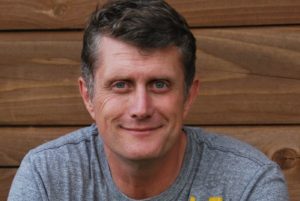 J. Scott Price is a former career soldier turned writer and earned a MFA in Writing, and a Publishing Certificate, from the Vermont College of Fine Arts. He’s currently working on a biography of the poet William Meredith. He’s a dedicated poet-in-training—and will be the rest of his life—and is currently exploring the idea of finding a publisher for his own first poetry collection. He’s particularly intrigued by the concept of literary lineage and is always looking to connect and discuss most any writing related topic, so please do reach out via LinkedIn, social media (@ABoyAndHisSons), or www.jscottprice.com. He is very grateful for the time he was able to spend as a Virginia Center for the Creative Arts Fellow, as well as for the bi-weekly writing group he leads for veterans and military family members.
J. Scott Price is a former career soldier turned writer and earned a MFA in Writing, and a Publishing Certificate, from the Vermont College of Fine Arts. He’s currently working on a biography of the poet William Meredith. He’s a dedicated poet-in-training—and will be the rest of his life—and is currently exploring the idea of finding a publisher for his own first poetry collection. He’s particularly intrigued by the concept of literary lineage and is always looking to connect and discuss most any writing related topic, so please do reach out via LinkedIn, social media (@ABoyAndHisSons), or www.jscottprice.com. He is very grateful for the time he was able to spend as a Virginia Center for the Creative Arts Fellow, as well as for the bi-weekly writing group he leads for veterans and military family members.
